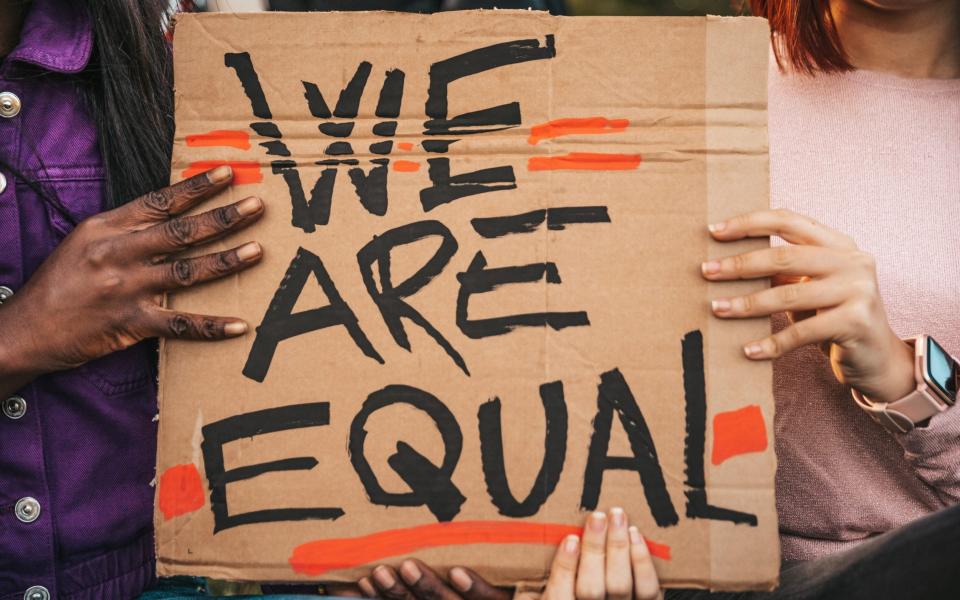BBC bans ‘Bame’ as report reveals ‘white nervousness’ when talking about race

The BBC is to drop the "BAME" acronym after a report found the term could “cause serious insult” by treating ethnic minorities as a single group.
Along with ITV, Channel 4 and Channel 5, the corporation has committed to move away from the “catch-all” term. Instead, it will refer to specific ethnic groups where possible, or use the full description of “black, Asian and minority ethnic”.
The pledge applies not only to news reports and programmes, but also to internal and external corporate communications.
June Sarpong, the BBC’s director of creative diversity, is among those to have regularly used the BAME acronym.
However, a report commissioned by the BBC on behalf of the broadcasting industry, and carried out by the Sir Lenny Henry Centre for Media Diversity, said the term was “problematic”.
It also identified “white nervousness” around language used to describe ethnicity, saying such changes should be made gradually because “the last thing we would want is for journalists to avoid discussing race and ethnicity altogether due to nervousness of ‘getting it wrong’”.
The report concluded: “There seems to be a general acceptance that Bame is no longer fit for purpose as a collective term in describing a group of people who do not identify as white, and if used needs to come with several caveats.”
During the course of their research, the study’s authors “did not come across anybody who described themselves as Bame when describing their racial identity”. The term did not emerge from the people it described “but was imposed on them”.
Confusion over BAME definition
They added that use of the term in headlines “does not enable deeper understandings of often complex stories”, and it could “cause serious insult to some members of the audience”.
Many people think the “A” stands for “and” rather than “Asian”.
The report suggested that applying the BAME label to stories such as the incidence of Covid-19 or educational outcomes was not useful, as those statistics applied to some ethnic minority groups and not others.
It also identified a “lack of trust” from within the black, Asian and ethnic minority community, with concerns that organisations are hiding discrimination against certain racial groups by collating everyone under the BAME label to meet diversity targets.
The report called for a ban of "Bame" as a noun to rhyme with “game”, saying most of those interviewed for the report found it “totally unacceptable”. Contributors to the report included Pat Younge, the BBC’s former head of production, who said: BAME, to me, is a thing: black and minority ethnic. BAME is not a word.”
Term ‘makes little sense for global audience’
Other interviewees included Krishnan Guru-Murthy, the Channel 4 News presenter, and Megha Mohan, the BBC’s gender and identity correspondent, plus representatives of employee network groups at the BBC, Channel 4 and ITV.
“There is a social problem that needs to be addressed. BAME is widely used in the creative sector, but public criticism of the term is increasingly mobilising. We identify strong evidence to suggest that the term BAME is problematic for many, and that a case can be made for considering alternative language,” the report said.
However, it went on: “This is not to say that the term BAME can simply be replaced with an alternative term, as there is no easy consensus on what such a term might be.”
Journalists who work for the BBC World Service and the corporation’s Asia Region said referring to an ethnic “minority” made little sense when reporting news for a global audience.
Some arts organisations including RADA and the Casting Directors Guild now use the phrase “black and global majority”, the report said, but it did not recommend that be taken up more widely.
The BBC said it would still use BAME in its annual report when detailing the proportion of staff from non-white backgrounds, as is required by Ofcom. Though it will also break down the data into constituent groups.

 Yahoo News
Yahoo News 